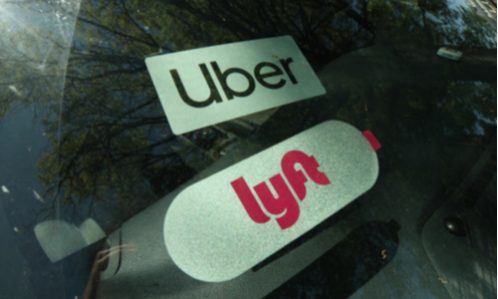Massachusetts is the second state to declare that Uber and Lyft drivers should be deemed employees under state wage and hour laws, the Attorney General’s Office announced on Tuesday, July 14.
Attorney General Maura Healey’s Fair Labor Division has filed suit for declaratory judgment in Suffolk Superior Court against Uber Technologies and Lyft.
If the complaint is successful, these drivers will have access to labor rights including minimum wage, overtime, sick time, and other benefits.
Healey wants a judge to rule Uber and Lyft drivers are employees and not independent contractors as the companies have “misclassified” them, the complaint stated.
“Uber and Lyft have built their billion-dollar businesses while denying their drivers basic employee protections and benefits for years,” Healey said in a statement. “This business model is unfair and exploitative. We are seeking this determination from the court because these drivers have a right to be treated fairly.”
Healey argues that Uber and Lyft fail to meet a three-part test that would allow the ride-hailing companies to classify drivers as independent contractors.
In the Bay State, a worker who provides a service for another is presumed to be an employee unless that party can prove that the worker is free from their direction and control; the services the worker performs are outside the usual course of their business; and the worker is engaged in an independently established trade of the same nature as the service performed.
The AG’s complaint claims that Uber and Lyft drivers are not free from the companies’ direction and control, and that drivers must sign service agreements that set the companies’ terms, including performance standards and forced arbitration provisions that prevent drivers from filing a lawsuit to enforce their rights.
Last month, the California Public Utilities Commission (CPUC) reminded Uber and Lyft of the July 1 deadline to secure workers’ compensation coverage for drivers. In a letter to the companies, the CPUC outlined the consequences for not complying, noting that the agency can cancel, revoke, or suspend a carrier’s operating authority and fine a carrier for violations.
Uber, Lyft, and other ridesharing companies have maintained that their core business is technology, not rides.
Later this year, a ballot initiative sponsored by Uber, Lyft, and DoorDash will ask California voters to rescind the law.
Last fall, lawmakers approved the landmark measure to require gig economy companies to treat workers as employees instead of independent contractors. The change impacts more than one million workers in the state.
Full Content: PYMNTS
Want more news? Subscribe to CPI’s free daily newsletter for more headlines and updates on antitrust developments around the world.

